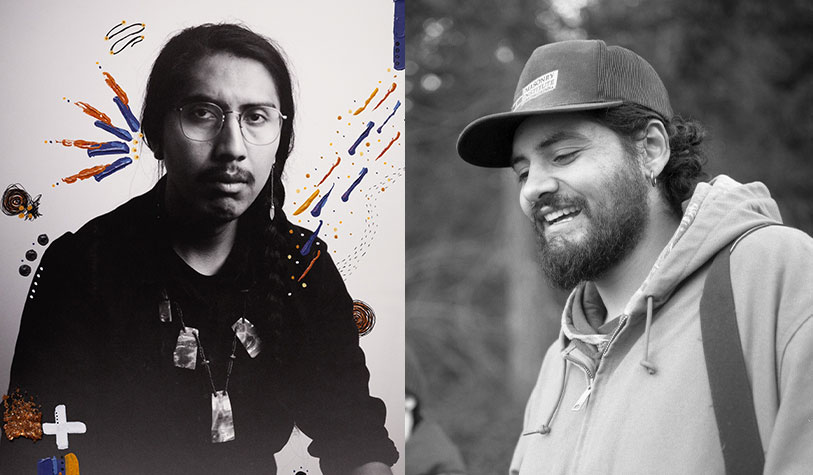
Sol Chiniquay and Nic Latulippe. Photo courtesy of the artists.
Documentary photographer and filmmaker Soloman Chiniquay and experimental filmmaker Nic Latulippe discuss the importance of community engagement in their collaborative storytelling projects. They’ll share insights from their work with grassroots programs and reflect on how their partnership has enriched their respective artistic practices.
Chiniquay’s lens-based work explores the ways he is welcomed to witness expressions of indigeneity, creating imagery that attempts to show, in sometimes raw ways, how people use and connect to the land and the artifacts they leave on it. He has worked on film productions such as The Body Remembers When the World Broke Open and the documentary shorts “Joe Buffalo” and “Be Long.”
Latulippe is a self-taught photographer and experimental filmmaker exploring land, place, and the South Asian diaspora in Canada. Latulippe works exclusively with celluloid, blending documentary and introspective storytelling. His current projects touch on the evolving South Asian Canadian identity, the commodification of Canmore, and ranching/rodeo culture in Alberta.
Facilitated by Janine Windolph, Director of Indigenous Arts at Banff Centre, the session includes a presentation Chiniquay and Latulippe, followed by a discussion and a Q&A. This conversation will be live streamed and will also be recorded and shared following the event. Sessions may share experiences and ask difficult questions.
About the Decolonizing the Narrative Conversation Series
The Decolonizing the Narrative Conversation Series is a bi-monthly conversation session inviting leading Indigenous Art creators to discuss their practices and processes. The series engages an Indigenous lens across various art forms, including Literary Arts, Film and Media Arts, Digital Media, Visual Arts, and Performing Arts such as Theatre, Dance, and Music. These sessions offer a space to explore and deepen your understanding of how Indigenous artists use their disciplines as tools to decolonize artistic processes and creation.